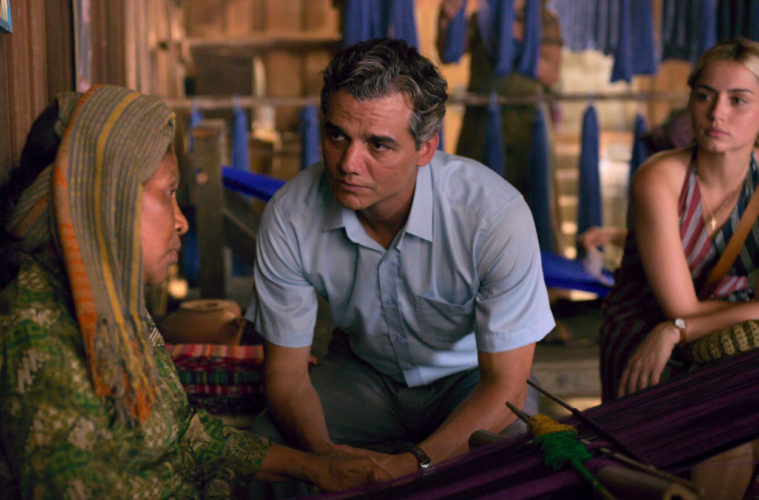Inspirational stories are in high demand as COVID-19 wreaks havoc, so the timing of Netflix’s latest release is on the money. Sergio is about selfless U.N. diplomat Sergio Vierra de Mello who, trying to make peace with Baghdad in 2003, died in a terrorist bombing that rattled the world. But there’s little here to leave audiences riveted; even less to leave them emotionally stirred. To call it a war on originality would be an understatement.
Director Greg Barker marshals the classic biopic mix of flashbacks, archival footage and hagiography to support his story. The result is a cluttered mix of globetrotting tropes, jumping from scene to scene at the speed of an incomprehensible bullet, checking off Wiki bullet points in Columbia, Baghdad, Rio de Janeiro and some places that aren’t even named. “I can’t summarize my life in three minutes,” Sergio (played by Narcos star Wagner Moura) says in an opening voice over. Clearly, it’s impossible to summarize his life in two hours. Vierra de Mello has done so much in his 34 year career worthy of recognition, attempting to include it all would be a mistake.
Barker’s approach offers too much of a good thing in some ways. The film has all the depth of a family photo album. Sergio, lying in rubble, recalls his most cherished memories before passing as two military servicemen (played by Garret Dillanhunt and Will Dalton) try to dig him out of heaps of concrete. From here, we flashback to Sergio’s beginnings as if in a superhero origin story.
His life in Timor gets most screen time, which is fitting. Considering it’s where he makes a name for himself, brokering a peace deal with Indonesia, and where he meets his girlfriend, Carolina, played by the distractingly beautiful Ana De Armas; you almost wish the whole film would take place here. Those oceans, slathered in sunset hues, are a breath of fresh air compared to Adrian Teijido’s on-the-ground camerawork in Baghdad. No matter. Barker’s background as a documentarian enhances his location shooting aesthetic in the Middle East, as seen in a shot of a boy in rags waving at the camera passing by, his glowing smile and pungent stench too genuine to have come from an extra.
The problem is that Barker spends more time recreating Sergio’s world than capturing who he was. This is most damaging in arguments with American diplomat Paul Bremer (Bradley Whitford), who disagrees on the U.N.’s peaceful approach to countering terrorism. It’s never made clear what drove these men to take different sides, especially Sergio, who is always going against the grain without explanation. All we know is that Sergio is the good guy, which, quite frankly, isn’t good enough for character development.
In the spirit of goodwill, however, let’s acknowledge this featur’s pros. Actors Moura and De Armas are believable lovers, delivering romantic lines like “remember Ipanema?” as they riff on “we’ll always have Paris.” The two wandering through abandoned ruins, swimming in empty seas, conjure moments Sergio may very well have envisioned just before death. Also engaging is a subplot involving Cambodian refugees and shots of Sergio’s two boys playing outside their coastal apartment.
Yet, for a film of such scale – countless years, endless locations – it’s remarkably thin, with no insight as to why Sergio put his life on the line to create a better world. Instead, Sergio is a less than super portrait of a real life superhero.
Advertising disclosure: We may receive compensation for some of the links in our stories. Thank you for supporting LA Weekly and our advertisers.

